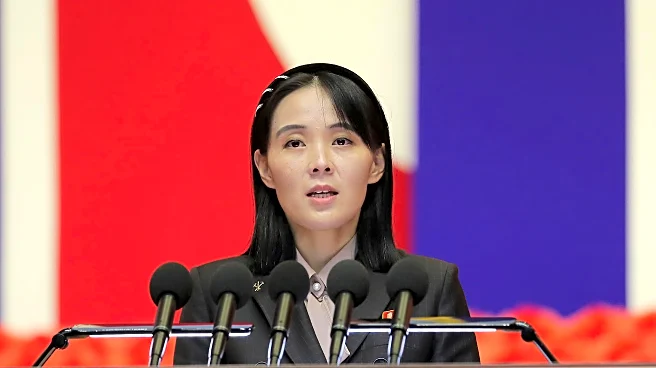What's Happening?
President Donald Trump has proposed a significant increase in H-1B visa fees, which could inadvertently benefit Middle Eastern countries like Saudi Arabia and the UAE. These nations are actively positioning themselves as global leaders in artificial intelligence and technology, attracting substantial investments from local and international sources. The Gulf region's strategic initiatives, such as Saudi Arabia's Vision 2030 and the UAE's National AI Strategy, are creating favorable conditions for tech firms by offering long-term visas, reduced regulations, and other incentives. This environment is drawing tech professionals with competitive compensation packages, tax advantages, and opportunities to work on cutting-edge projects.
Why It's Important?
The proposed increase in H-1B visa fees by the White House could intensify the global competition for tech talent. As the U.S. potentially becomes a less attractive destination for foreign tech professionals due to higher costs, Middle Eastern countries may capitalize on this shift. By offering attractive compensation and a business-friendly environment, these countries could attract top talent from Silicon Valley and other tech hubs. This shift could impact U.S. tech companies' ability to recruit and retain skilled workers, potentially affecting innovation and competitiveness in the American tech industry.
What's Next?
If the proposed H-1B visa fee increase is implemented, U.S. tech companies may need to reassess their recruitment strategies and explore alternative ways to attract foreign talent. Meanwhile, Middle Eastern countries are likely to continue enhancing their appeal to tech professionals, potentially leading to a redistribution of global tech talent. The U.S. government and tech industry stakeholders may engage in discussions to address the potential implications of the visa fee changes and explore policy adjustments to maintain the country's competitive edge in the global tech landscape.












